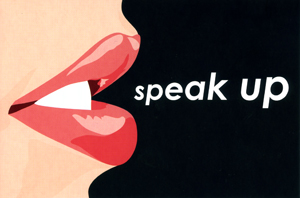Complaints information for young people
Discrimination. Don't cop it!
You don’t have to put up with being treated unfairly because you’re young. There are laws to protect you against discrimination, harassment and bullying. These laws apply right across Australia.
If you have a complaint, the Australian Human Rights Commission can look into it. We will talk to the people involved and help you work out a solution.
Our aim is to help you deal with your complaint quickly and with the minimum of fuss. Our complaint handling service is free of charge.
What can I complain about?
The Commission can investigate complaints of discrimination, harassment and bullying that happened because of your:
- sex, including pregnancy, marital status and sexual harassment
- disability, whatever it is
- race, colour, national or ethnic background
- age
- sexual preference, criminal record, trade union activity or political opinion (in employment only)
It is against the law to be discriminated against in employment; at school, TAFE or university; getting or using services; going to public places, renting accommodation, playing sport and in other parts of public life.
Here are some examples of the complaints we receive:
Tanya works as a receptionist and claims her supervisor constantly makes comments about her clothes and her body, leans over her and offers to take her out for a drink. Tanya has told him she is not interested but he keeps hassling her.
Tarik went to a local nightclub with his friends but they were refused entry. He claims they were told that only people aged over 20 were allowed in to the club.
Michael, who is Aboriginal, was researching information on the Internet for his university course and found an internet site which allowed people to publish offensive comments about Aboriginal people.
Julie uses a wheelchair and can not get into her local video store because of a step at the front door.
How are complaints resolved?
Complaints to the Commission are resolved through an informal process known as conciliation. Conciliation is not like going to court. You don’t need a lawyer and you don’t have to prove or disprove what happened.
Conciliation allows the people involved in a complaint to talk through the issues with the help of someone impartial and settle the matter on their own terms. We have a good record in helping people resolve their complaints this way.
Outcomes will vary depending on the complaint, but they can include an apology, reinstatement to a job, compensation for lost wages, a work reference or changes to a policy.
Find out more:
How do I make a complaint?
You can make a complaint if you think you have been treated unfairly. Complaints must be made in writing or by email.
A complaint can be made in any language. Follow the link for information about making a complaint in other languages.
The Commission can arrange an interpreter in your language or a sign language interpreter, if required. We can also help you write out your complaint if you need assistance.
Contact us
For more information, please contact our National Information Service:
Phone: 1300 656 419 or 02 9284 9888
Email: infoservice@humanrights.gov.au
TTY: 1800 620 241 (toll free)
Fax: 02 9284 9611
Telephone Interpreter Service: 13 14 50


